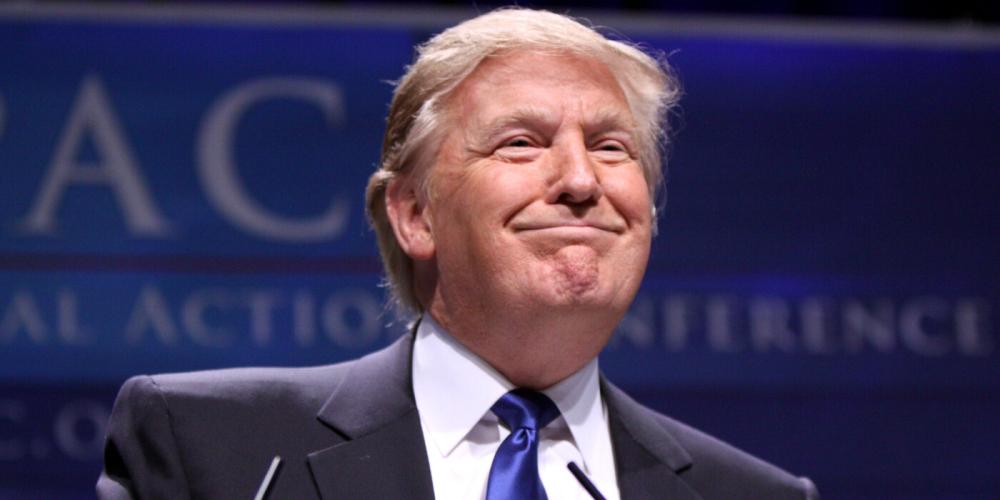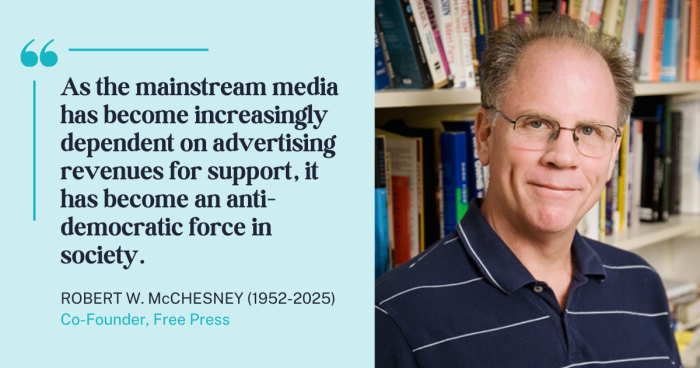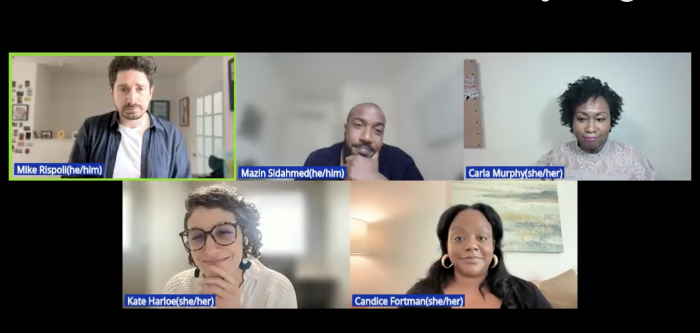Trump Wants to Destroy Public Media

President Trump and his administration have been locked in a feud with NPR for weeks.
First Secretary of State Mike Pompeo shouted (yes, literally) at NPR’s All Things Considered co-host Mary Louise Kelly after she asked him about Ukraine in the midst of the Trump impeachment proceedings. The interview itself became news when Kelly revealed that after she turned her recorder off, Pompeo yelled obscenities at her and demanded that she point out Ukraine on a map.
A few days later, an NPR reporter who had been scheduled to travel with Pompeo on a trip to Europe was denied press credentials. No explanation was offered, though most observers connected the dots.
And in the midst of the blow-up, Trump retweeted right-wing radio host Mark Levin, who asked why NPR still exists — echoing the inquiry with an exclamation-point-laden “A very good question!”
This week Trump released his slash-and-burn budget, which proposes zeroing out all public-media funding over the next two years. This would be devastating for the local stations that bring NPR’s and PBS’ much-needed investigative journalism and educational programming to our communities.
So why does NPR still exist?
Levin noted that there are thousands of radio stations, podcasts and satellite-radio options in the United States. But abundance doesn’t automatically mean diversity of perspective, quality reporting or accessibility.
Commercial radio stations often favor automated music over local-news production. Podcasts require an internet connection, but more than 70 million people don’t subscribe to broadband at home due to high prices. Satellite radio also comes with a hefty price tag.
Contrast this with what it takes to listen to NPR or watch your local PBS station: the one-time investment of a radio or TV. No subscriptions. No fees. There are no ongoing costs to access local NPR and PBS stations, which remain outlets with record-high levels of trust.
At a time when journalism is under constant threat and being replaced by low-quality, hyper-targeted, ad-driven content, we need to invest more in the few remaining trusted sources for local, noncommercial news and information — not cut back.
NPR and PBS are not perfect. Public media has gotten a fair amount of deserved critique for its failures to directly tackle racism and the lack of diversity in both its newsrooms and audiences. But these are the only sources of publicly funded media we have — and we should be working to improve, diversify and strengthen them.
And the urgency for high-quality journalism can’t be overlooked. There is a national disinformation crisis unfolding before our eyes in the midst of a pivotal election year. The last thing we need is to cut back on outlets that pursue truth and accuracy.
This is especially important in local communities where newspapers have folded: Since 2004, more than one in five local newspapers has shut down. As a result, there are fewer reporters doing the important investigative journalism needed to hold powerful people and institutions to account.
How did we get here?
The Corporation for Public Broadcasting (CPB), a nonprofit corporation created by the Public Broadcasting Act of 1967, distributes federal grants to help keep local public-television and radio stations on the air. Recent public polling rated PBS and its 350 member stations as the most-trusted nationally known institutions. Respondents said the taxpayer money funding those stations was “well spent.” Previous attempts to cut CPB funding by Republican administrations and Congress have met with widespread bipartisan condemnation.
But the Trump administration’s fiscal-year-2021 proposal seeks to eliminate all funding for public broadcasting over a two-year period — proposing a cut from its current annual level of $465 million to $30 million by FY2021. This is designed, the budget proposal says, “to conduct an orderly transition away from federal funding.” The budget would then be zeroed out the following year.
This all begs a simple question: why?
Public media represents less than .01% of federal spending. Defunding it would do absolutely nothing to address the budget deficit. This isn’t a drop in a bucket — this is a droplet in the Atlantic Ocean. Send a message to Congress and tell your representative and senators to protect public-media funding.





